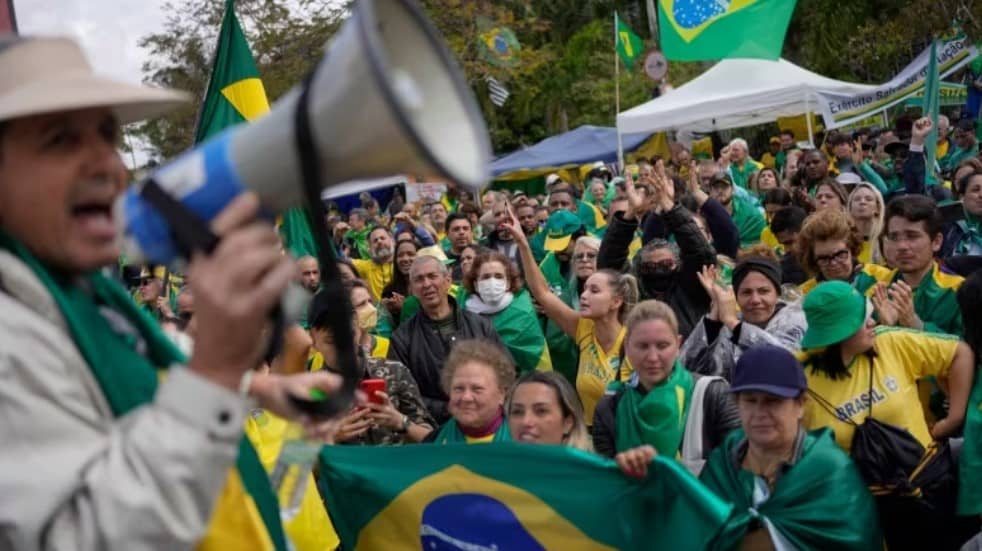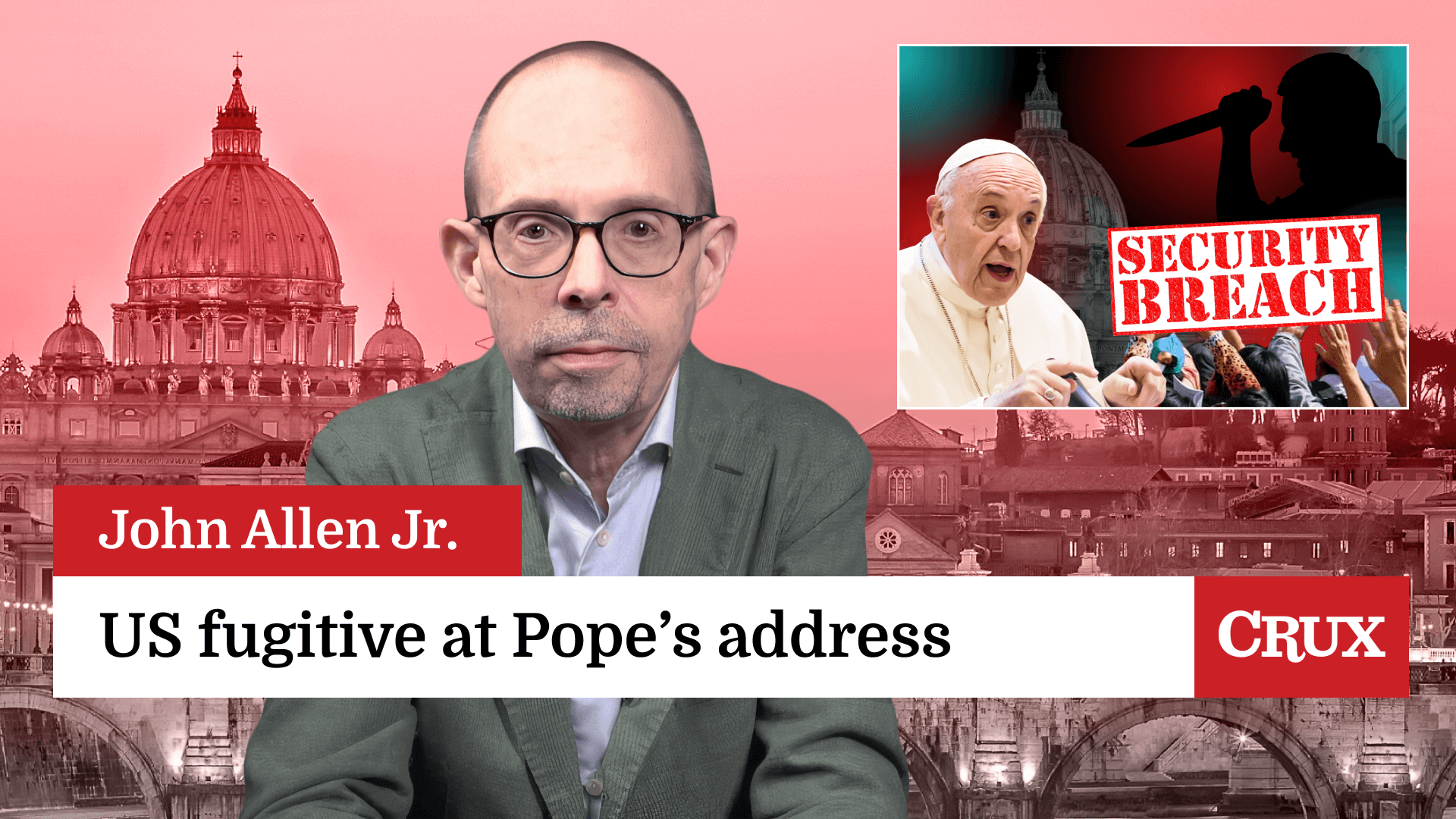ROME — In his final public utterance of 2015, Pope Francis on Thursday insisted that the unmistakable brutality and horrors of the past year, often “weighed down by private interests, by an insatiable thirst for power, and by gratuitous violence,” were nevertheless not the last word.
“How many great gestures of goodness, of love and solidarity, filled the days of this year, even if they never became items for the nightly news!” the pope said.
“It’s a good thing,” the pope added in an ad-lib comment, “not to make news.”
“These signs of love should not and must not be obscured by the power of evil,” Francis said. “Good always prevails, even if in certain moments it can appear weaker or hidden.”
The pontiff made the remarks in his homily for the traditional New Year’s Eve vespers service in St. Peter’s Basilica, an event that also includes Eucharistic adoration and a brief visit to the life-size Nativity set erected in St. Peter’s Square.
Francis did not attempt to disguise the fact that the past year was marked by a series of calamities, including terrorist attacks, a massive refugee crisis in Europe, and other tragedies, which together produced enormous suffering.
“We can’t forget that so many days were marked by violence, by death, by unspeakable suffering among so many innocent people, by refugees forced to leave their countries, and by men, women, and children without a stable home, food, and support,” he said.
Nevertheless, the pope argued, the spirit of mercy underlying the special jubilee Year of Mercy he’s called for 2016 outweighs motives for despair.
“The company of mercy is a source of light to better understand what we’ve lived through, and a source of hope that accompanies us at the beginning of a New Year,” he said.
“Today our eyes need to focus in a special way on the signs that God has conceded to us,” the pope said, “in order to touch with our own hands the power of his merciful love.”
The pontiff was speaking in the context of a vespers service that features some of the most best-known hymns in the Christian tradition, including the “Te Deum” hymn of praise traditionally sung at the close of every year.
As he has in past years, Francis used the New Year’s Eve service in part to invite the world to an examination of conscience.
“To review the days of the year now past can be a memory of facts and events that recall moments of both joy and sorrow,” he said, “or it can be a way of trying to grasp if we’ve perceived the presence of God, who renews everything and sustains it with his help.”
“We’re called to reflect on whether the events of the world were realized according to the will of God,” Francis said, “or if what prevailed was largely the projects of human beings, often weighed down by private interests, by an insatiable thirst for power and by gratuitous violence.”
A pope is also the Bishop of Rome, and Francis included a special thought on Thursday for his fellow Romans.
“I wish that a sincere invitation will reach all its inhabitants to move beyond the difficulties of the present moment,” he said, addressing a city currently under federal administration after the collapse of its elected government in October amid corruption scandals.
It was a collapse the pope actually helped to initiate by publicly insisting he had not invited the then-mayor of Rome, Ignazio Marino, to Philadelphia for the World Meeting of Families in late September and adding that Marino “professes to be Catholic,” a comment taken by many Romans as a rebuke for a mayor who had backed both gay marriage and euthanasia, and who some in the Vatican believed had failed to prepare the city adequately for the jubilee year.
“If the most popular man in the world takes down one of the least popular in Italy, that says that all the rules of the game have been thrown up in the air, including possibly those of mercy,” the Italian daily La Stampa editorialized at the time.
On Thursday, Francis took the high road.
“A commitment to recover the fundamental values of service, honesty, and solidarity will permit [the city] to overcome the serious uncertainties that have dominated the scene this past year, which are symptoms of a scarce commitment to the common good,” he said.
The pontiff made reference to the locally revered painting of Mary as Salus Populi Romani, “Protectress of the Roman People,” displayed in the Basilica of St. Mary Major, the oldest church in the world dedicated to the Madonna, where he’ll visit on Friday. It’s an image Francis went to see barely 12 hours after his election to the papacy, and also before and after every foreign trip he’s taken. The image is credited by Romans, among other things, with saving the city from a plague in the 6th century.
The pope asked Mary to help Rome live up to its historic role as a “privileged interpreter of faith, welcome, fraternity, and peace.”
The New Year’s Eve liturgy represented another item on a busy holiday itinerary for Pope Francis.
Friday morning, the pontiff is scheduled to celebrate a Mass in honor of the Virgin Mary in St. Peter’s Basilica, an event that also marks the formal release of his annual message for the Church-sponsored World Day of Peace.
The Vatican presented the text of the message on Dec. 8, in which Francis extolled the virtues of compassion, solidarity, and mercy as alternatives to the “globalization of indifference.”
The pontiff also stakes out stands on several specific issues in the message, including a call for the abolition of the death penalty, forgiveness of debts of impoverished nations, and stronger environmental protection.
Friday afternoon, Francis will go across town to visit the Basilica of St. Mary Major, where he’ll open a holy door signifying his jubilee year.
The Vatican traditionally regards the holiday season as closing on Jan. 6, when Francis will celebrate a Mass for the feast of the Epiphany. Not long afterward, on Jan. 11, he’ll deliver his annual address to the diplomatic corps accredited to the Vatican, generally considered the pope’s most important foreign policy speech of the year.

















